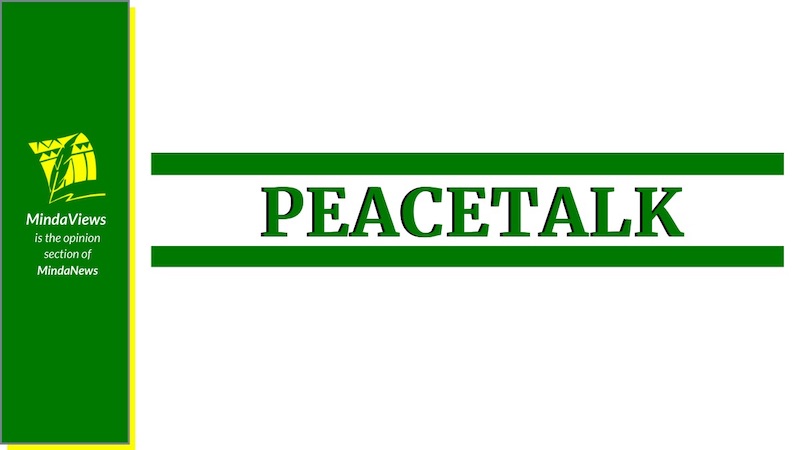
CAGAYAN DE ORO CITY (MindaNews / 03 December) — The issue of extending the transition period for another three years is now the subject of heated debates as the year comes to an end. The question is: do we really need an extension or not?
The President has reportedly given his blessings to extension to the Moro Islamic Liberation Ftont-led Bangsamoro Transition Authority. But he also said the BTA should work this out with Congress. Meaning, he is leaving it out to the BTA to do the lobbying. Hmmm…
If we were to be asked about this issue of extension, from the standpoint of the peace negotiation, three years of transition for a sovereignty-based conflict like the Bangsamoro will not be sufficient. No sovereignty-based conflict in the world, as far as we know, has had a transition period of three years only.
In the sovereignty-based conflict in Northern Ireland, normalization alone took about 11 years. The Bougainville conflict, if our memory serves us right, required 15 years. So during the peace negotiations with government, we batted for at least six years of transition. But ultimately government ‘pressured’ the MILF to accept three years, which is what’s in the BOL (Bangsamoro Organic Law). That was a mistake, we thought.
So today, what we said all along that this was, and is, indeed a mistake, has been proven correct. So why should a transition period need more than three years? Because transition is about institution building, and institution building in a sovereignty-based conflict is calibrated with the devolution of internal sovereignty from the mother state to the smaller sub-state entity. And institution building is not only about legislating codes of governance in Parliament relevant to self-governance but also institutions for normalization of Bangsamoro society and Bangsamoro-Philippine relations, which includes demilitarization of the Bangsamoro and decommissioning of weapons of war.
For a conflict like the Bangsamoro that had lasted for four centuries, three years of transitioning to self-governance and normalization is absurd especially when what is being transitioned to is from a unitary state system of colonial governance to a parliamentary-ministerial system of self-government. But having said that, the suggestion by some Moro officials that the extension proposal, which they don’t oppose per se, ought to undergo ‘audit’ or evaluation in terms of financial spending and performance is not without rationale.
Really, if the earned sovereignty approach to resolving the conflict and the peace agreement were followed in toto, a systematic and defined road mad of the transition would have been adopted and there would have been no problem with the number of years allocated to transition as well as the evaluation of devolution of internal sovereignty on the part of government on one hand, and fiscal and institution building performance on the part of the Bangsamoro government on the other.
However, there’s no use crying over spilled milk, as the adage goes. Mistakes had been committed and there’s a realization by all parties that these mistakes had been committed. So what matters now is the mitigation of the dire effects of these mistakes and their correction.
At this point, we think, this is where the extension of the transition period is relevant. Which simply means that if and when another extension of three years or more is granted, this could be put to good use by maximizing institution building and at the same time correcting the flaws of the BOL and bringing back the spirit and letter of the Peace Agreement. There’s no time to lose this time.
Given the three years by the BOL for both the Bangsamoro government and the Philippine government to perform their roles under the transition mechanism, and given intervening events such as the COVID-19 pandemic, another three years should not be wasted. For in the final analysis, it will be the transition period that will be the yardstick by which the Bangsamoro people will accept or not the kind of Bangsamoro government that is in place.
(MindaViews is the opinion section of MindaNews. Robert Maulana Marohombsar Alonto was a member of the peace panel of the Moro Islamic Liberation Front that negotiated the Framework Agreement of the Bangsamoro signed in 2012 and the Comprehensive Agreement on the Bangsamoro signed in 2014. He was also a member of the Bangsamoro Transition. Commission that drafted the proposed Bangsamoro Basic Law that the Aquino administration did not pass. This piece was first published on his FB page on 30 November 2020. MindaNews was granted permission to share this).







